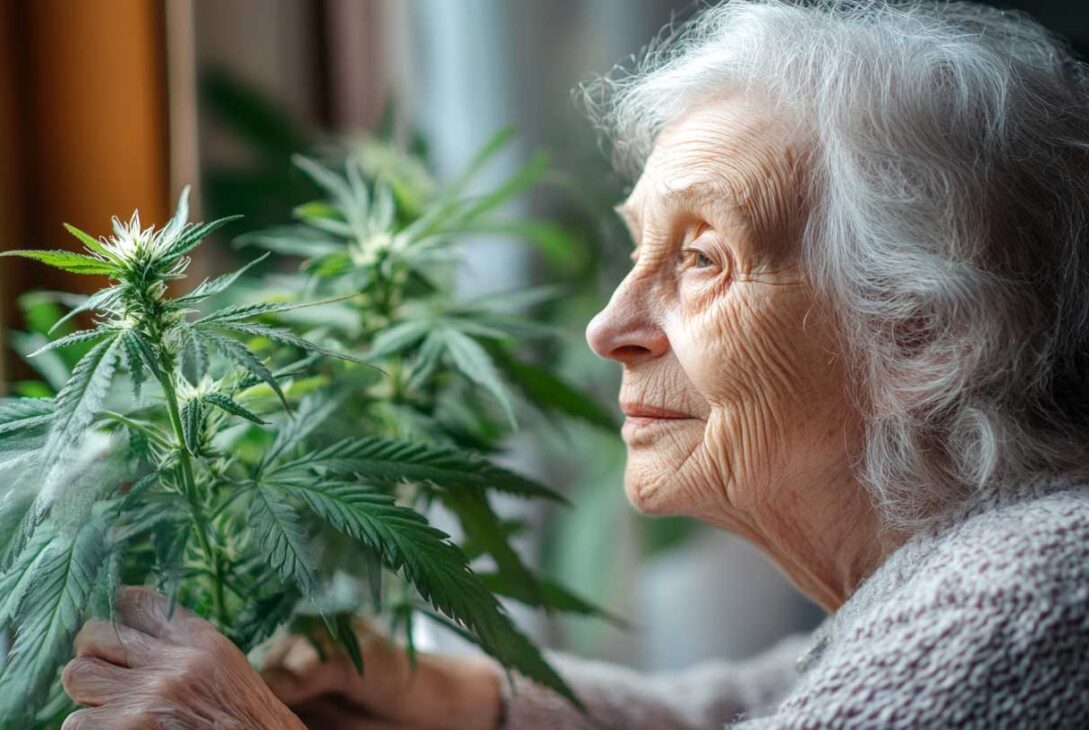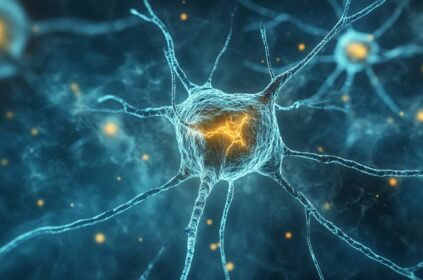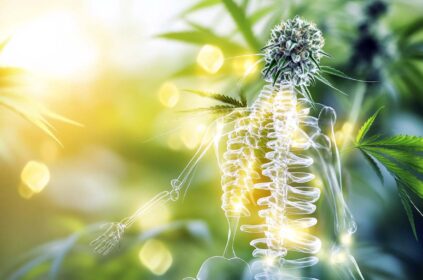Delta-9 THC’s Impact on Cognitive Function in Elderly Populations
Introduction
As society navigates the complexities of an aging population, researchers are increasingly focused on finding effective treatments to combat cognitive decline. Among the substances gaining traction in this realm is Delta-9 tetrahydrocannabinol (THC)—the principal psychoactive ingredient in cannabis. This article aims to shed light on Delta-9 THC’s potential effects on cognitive function in elderly populations, particularly regarding memory, learning, and overall brain health.
The Endocannabinoid System and Aging
At the heart of understanding THC’s impact is the endocannabinoid system (ECS), which regulates a myriad of physiological processes essential for maintaining homeostasis. This system is composed of cannabinoid receptors, endocannabinoids, and enzymes that are involved in energy balance, immune function, and neurological health. Research indicates that the ECS diminishes with age, leading to various cognitive impairments. When the ECS is functioning optimally, it supports brain plasticity—the brain’s ability to adapt and reorganize itself—a process that can be compromised in elderly individuals.
Delta-9 THC and Cognitive Function in Elderly Mice
Studies involving mice have revealed promising implications for Delta-9 THC in countering cognitive decline associated with aging. For instance, a significant study published in Nature Medicine demonstrated that low doses of THC could enhance learning and memory in older mice. In this study, researchers found that the administration of THC to aged mice restored gene expression in the hippocampus (a brain region integral for memory) to levels comparable to those observed in younger subjects.
Another illuminating study indicated that chronic oral consumption of Delta-9 THC notably improved working memory in aged rats. The enhancements were particularly evident at extended delays, underscoring THC’s potential to alleviate age-associated working memory deficits.
Mechanisms of Action
Understanding the mechanisms behind THC’s effects on cognition involves examining its interaction with the brain’s cannabinoid receptors, particularly the CB1 receptors. These receptors are abundant in regions responsible for learning and memory, such as the hippocampus and prefrontal cortex. When THC binds to these receptors, it facilitates the release of neurotransmitters like glutamate and acetylcholine, which are vital for cognitive functioning.
However, it’s essential to recognize that THC’s effects on cognition can be dose-dependent. While low doses may confer benefits, higher doses can lead to cognitive impairments, particularly in younger subjects, highlighting the necessity for careful dosing in elderly populations.
Clinical Implications and Future Research
Despite the encouraging findings from animal studies, applying these results to human populations requires additional investigation. Researchers stress the importance of conducting studies on different animal models, including nonhuman primates, before advancing to human clinical trials. Such research will be crucial in establishing the safety and efficacy of THC for cognitive support in elderly individuals.
Safety and Potential Risks
While the therapeutic potential of Delta-9 THC is appealing, its use in elderly populations must be approached with caution. Older adults often take multiple medications, and THC has the potential to interact adversely with common prescriptions, such as blood thinners and sedatives. Furthermore, long-term use of cannabis during pivotal developmental periods has shown a correlation with enduring cognitive and emotional impairments, raising concerns about its use among the elderly.
Role of CBD in Mitigating THC’s Effects
Interestingly, Cannabidiol (CBD), another significant component of cannabis, may play a protective role alongside THC. Research indicates that CBD can help alleviate some of the cognitive impairments associated with THC, raising the prospect of combining these two compounds for a balanced therapeutic effect. This synergy may allow for the benefits of THC without the downside of cognitive decline, although the optimal ratio of THC to CBD for achieving the best outcome is still an area of ongoing inquiry.
Practical Considerations for Elderly Populations
For elderly individuals contemplating the use of Delta-9 THC to enhance cognitive function, certain practical considerations should be kept in mind:
- Consultation with Healthcare Providers: Engaging with medical professionals familiar with cannabis is crucial to navigate potential drug interactions and side effects effectively.
- Dose and Administration: Emphasizing low doses can maximize cognitive benefits while minimizing adverse effects. Starting low and gradually adjusting based on individual responsiveness is advisable.
- Combination with CBD: Utilizing products that contain both THC and CBD may help harness the positive effects of both compounds while reducing the likelihood of negative cognitive outcomes.
Conclusion
Delta-9 THC presents a promising avenue for addressing age-related cognitive decline, particularly concerning memory and working memory. However, as research progresses, it is vital to approach this topic with a balanced perspective, carefully weighing potential benefits against risks. Continued exploration in this area will be imperative for establishing practical and safe applications of THC in promoting cognitive health among the elderly.
Actionable Tips
- Stay Informed: Keep abreast of the latest research and developments related to Delta-9 THC and cognitive function.
- Consult Professionals: Always discuss your interest in cannabis-derived products with healthcare providers to ensure safety and appropriateness, especially if you are taking other medications.
- Monitor Dose and Effects: Be mindful of your dosing and how it impacts your cognitive function, adjusting as needed based on personal experiences.
By integrating these insights, individuals can navigate the complex landscape of Delta-9 THC’s role in cognitive health with greater confidence and clarity.
Additional Resources
- Scientific literature provides extensive insights into the effects of Delta-9 THC on cognitive function.
- Health organizations offer guidelines on maintaining cognitive health as we age, enriching the reader’s understanding of overall brain wellness.
- Discussing with knowledgeable healthcare professionals can offer personalized advice tailored to individual health needs.
This exploration of Delta-9 THC’s impact on cognitive function highlights a vital intersection of research, practical application, and the human experience as we seek new solutions for age-related challenges.





















